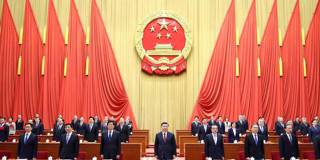The period after America’s late-nineteenth century Gilded Age laid the domestic foundation for the country’s international primacy in the twentieth century. Likewise, China’s global prospects will depend on whether President Xi Jinping can lead the country into its own era of progressive reform.
ANN ARBOR – Within the span of a generation, a new super-rich class emerges from a society in which millions of rural migrants toiled away in factories for a pittance. Bribery becomes the most common mode of influence in politics. Opportunists speculate recklessly in land and real estate. Financial risks simmer as local governments borrow to finance railways and other large infrastructure projects. And all of this is happening in the world’s most promising emerging market and rising global power.
No, this is not a description of contemporary China, but rather of the United States during the Gilded Age (roughly 1870 to 1900). This formative period of American capitalism is remembered as “Gilded,” rather than “Golden,” because beneath the veneer of rapid industrialization and economic growth, many problems festered.
Public backlashes against the Gilded Age triggered wide-ranging economic and social reforms that ushered in the Progressive Era (approximately 1890s-1920s). This domestic revolution, along with imperial acquisitions abroad, paved the way for America’s rise as the superpower of the twentieth century.

ANN ARBOR – Within the span of a generation, a new super-rich class emerges from a society in which millions of rural migrants toiled away in factories for a pittance. Bribery becomes the most common mode of influence in politics. Opportunists speculate recklessly in land and real estate. Financial risks simmer as local governments borrow to finance railways and other large infrastructure projects. And all of this is happening in the world’s most promising emerging market and rising global power.
No, this is not a description of contemporary China, but rather of the United States during the Gilded Age (roughly 1870 to 1900). This formative period of American capitalism is remembered as “Gilded,” rather than “Golden,” because beneath the veneer of rapid industrialization and economic growth, many problems festered.
Public backlashes against the Gilded Age triggered wide-ranging economic and social reforms that ushered in the Progressive Era (approximately 1890s-1920s). This domestic revolution, along with imperial acquisitions abroad, paved the way for America’s rise as the superpower of the twentieth century.